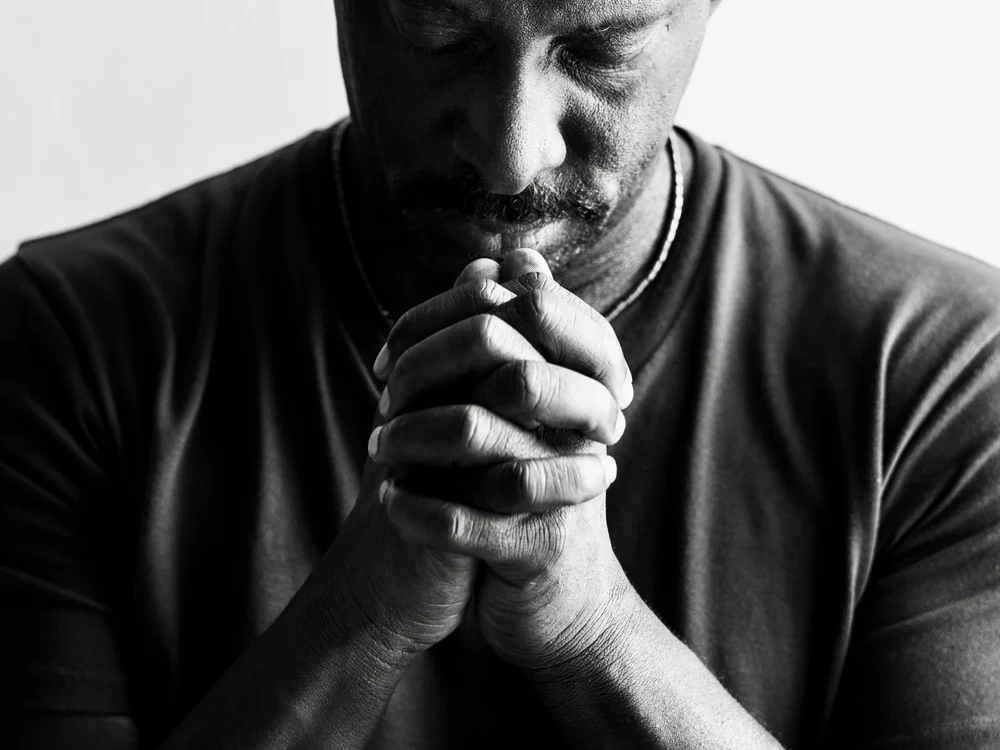
Normandy Invasion, June 1944; Troops in an LCVP landing craft approaching "Omaha" Beach on "D-Day", 6 June 1944. Photograph from the Army Signal Corps Collection in the U.S. National Archives via Wikimedia Commons.
Disclosure: This post may contain affiliate links, meaning Beautiful Christian Life LLC may get a commission if you decide to make a purchase through its links, at no cost to you.
Daniel Rowlands served more than two decades in the United States Army as a helicopter and airplane pilot. He holds Master of Arts degrees in Biblical Studies and Theological Studies from Westminster Seminary California.
In response to the article “Christians and the Military,” the following comment was submitted by a Beautiful Christian Life reader:
I just read the article written today by Daniel Rowlands entitled “Christians and the Military.” I notice that there was no mention or comment about some of the most pertinent verses in the New Testament, Matthew 5:43-46, wherein Jesus himself commands us to love our enemies and do good to them. I would really appreciate Daniel’s perspective on this. Thank you very much. God Bless!
Dear Reader,
Surely this is an important topic since there are so many Christians serving in military forces around the world. As you correctly point out, Christians are called to love our enemies and to do good to them, even as God loved us while we were his enemies (Rom. 5:8-10). God is compassionate, merciful, and loving toward us.
God’s moral law that teaches us not to kill also carries with it the value of human life.
On the other hand, God is also just—the perfectly righteous judge. He has appointed government authorities as the means of carrying out his justice in this fallen world (e.g., Rom. 13:4). God’s moral law that teaches us not to kill also carries with it the value of human life. It includes the loving command to protect people from others who want to injure or kill them—to place a high value on all human life, even the lives of our enemies who are made in the likeness of God (James 3:9).
Love means protecting the defenseless. God teaches that life is his gift. He commands us to preserve not only our own lives but also the lives of others, and he has appointed government authorities in part for this purpose by means of just defense (e.g., Prov. 24:11). As I pointed out in my article, military forces established by God’s appointed authorities are legitimate.
Nowhere in Scripture does God command soldiers who are Christians to give up being soldiers.
Yet, the issue you raise seems to be related more to the question of Christians serving in the military, since Christians are called to love their enemies. First, as I pointed out in the article, nowhere in Scripture does God command soldiers who are Christians to give up being soldiers—in fact, on a few occasions our Lord commends them.
If serving in the military is antithetical to being a Christian, surely Christ Jesus would not have commended them. But how can the two be reconciled? How can loving one’s enemies be reconciled with being a soldier with the mission to kill an enemy?
It is loving to protect and defend the defenseless, and it is also loving to protect a wicked person from killing others.
As far as the command to love one’s enemies, it would be unloving to show favor toward an evil enemy against the defenseless by failing to protect those who do not have the means to protect themselves. Love also means coming to the aid of others. In other words, under the rule to love one’s enemies, would it be loving to permit an enemy to murder a defenseless person? It would not.
In fact, it is loving to protect and defend the defenseless, and it is also loving to protect a wicked person, an enemy if you will, from killing others—to bring that person to the point where they lay down their arms and give up their own evil ends. Thus, God has appointed and legitimized government authorities for this purpose; it is loving to defend the defenseless and the evil person from carrying out wickedness.
Christians are not to take justice into their own hands.
What a Christian is not to do is to take justice into their own hands. As Christians in Christ’s church, our sword is the word of God. Only legitimately appointed government authorities (Rom. 13:1-8) are agents of God’s justice, not individuals alone and not the church.
In sum, the whole counsel of God teaches us that military authority is legitimate, that Christians may serve in such military forces, and that loving our enemies does not mean to be unloving to the defenseless. In God’s wisdom he has provided the means for restraining evil and carrying out his justice in this fallen and sinful world. Of course, because we are all fallen and sinful, we are far from perfect; but God is good, and he will even use the evil acts of others to bring about his good ends.
Related Articles:
-
3 Things a Christian Should Consider Before Serving in the Military
-
16 Bible Passages about Why God Allows Evil and Suffering in the World
from Blog - Beautiful Christian Life https://ift.tt/WBTP1Ko
via IFTTT






